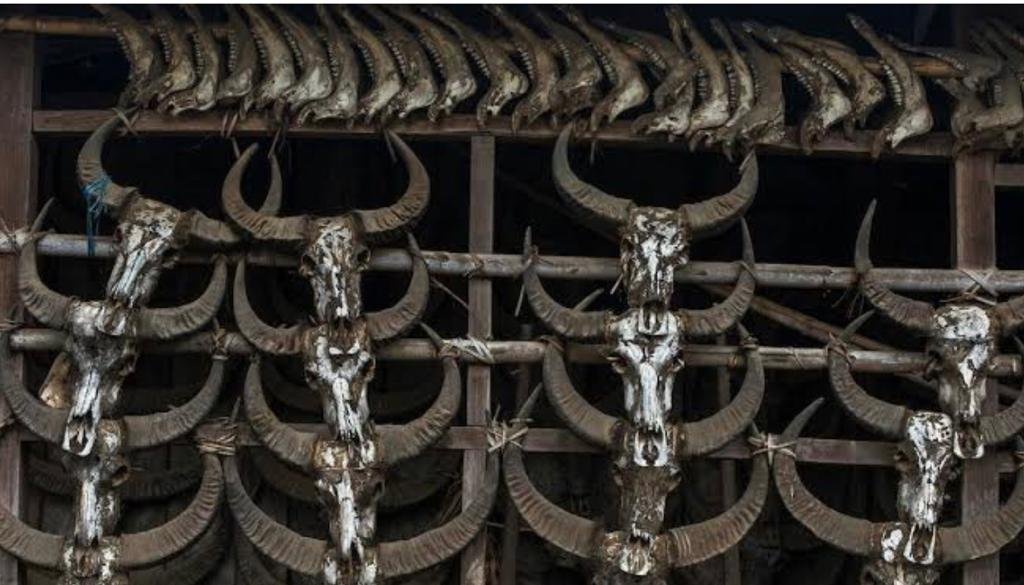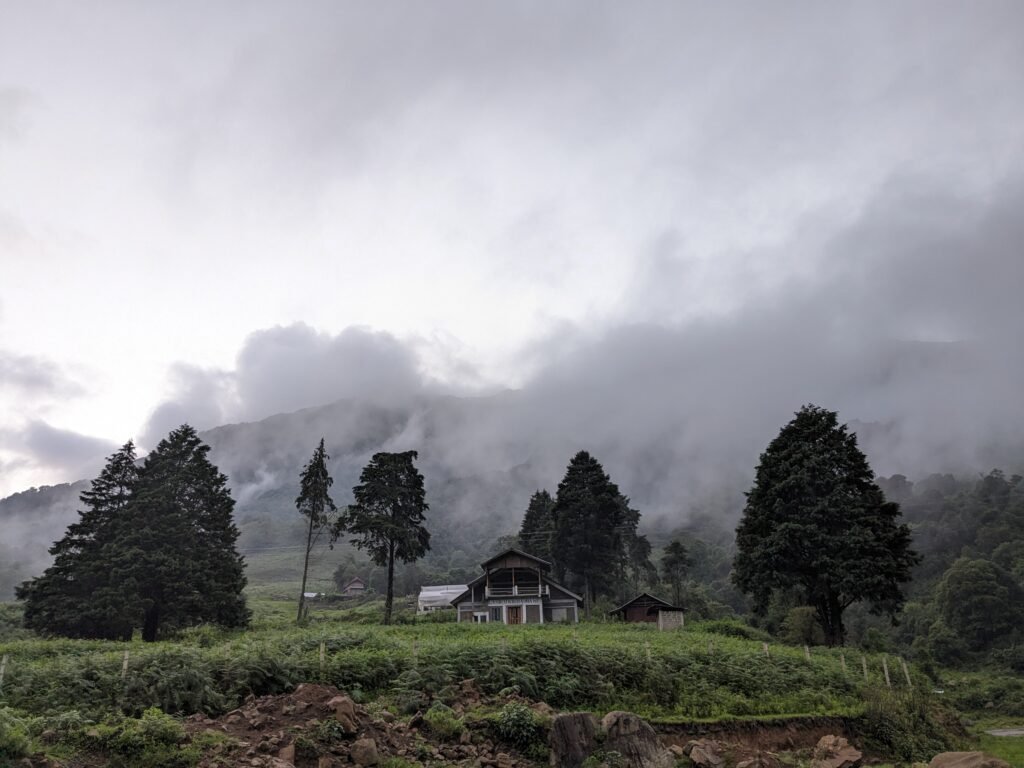For centuries, the Nagas, an indigenous tribal community, have thrived in harmony with nature. At the heart of their cultural heritage lies the art of hunting, an age-old practice that has sustained their livelihood and profoundly preserved their unique identity. While the world undergoes rapid transformations, the Nagas continue to cherish and uphold the significance of hunting, reflecting deep-rooted respect for nature and tradition. Hunting among the Nagas has always remained a vital aspect of their cultural fabric.
Cultural Relevance
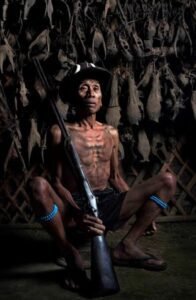
Hunting is deeply ingrained in Naga culture and holds immense cultural significance. Historically, hunting served as the primary means of sustenance for the community, providing them with essential proteins and nourishment. The hunt was more than just a means of acquiring food; it was a rite of passage, symbolising young Nagas’ transition from adolescence to adulthood. The elderly hunters would impart their knowledge, skills, and values to the youth during hunting expeditions, fostering a sense of unity and community.
Preservation of Traditions
In an era of modernisation and globalisation, traditional practices often face the threat of extinction. However, the Nagas have admirably preserved their hunting customs and rituals. These practices are meticulously passed down from generation to generation, safeguarding the cultural heritage and strengthening the bond between elders and the younger population.
Hunting Rituals and Beliefs
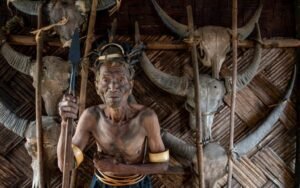
Hunting for the Nagas is not solely about the hunt but encompasses a series of rituals and ceremonies. Before embarking on a hunting expedition, the community performs elaborate rituals to seek blessings from the spirits of the forests and their ancestors. These rituals are seen as a way to ensure a successful and ethical hunt, where animals are respected and thanked for providing sustenance. While there are variations in customs and practices among the different Naga tribes, some common aspects of hunting rituals and beliefs can be highlighted:
- The spiritual significance of hunting: Hunting among the Nagas is not just a means of procuring food but is often accompanied by spiritual beliefs. They believe that the spirits of ancestors and deities govern the forests and animals; therefore, they seek blessings from these spirits before embarking on a hunt. Hunters perform rituals to ensure the spirits are appeased, and the hunt succeeds.
- Community involvement: Hunting is seen as a collective activity in Naga society. It is not just an individual pursuit but involves the entire community. Elders, experienced hunters, and young warriors often participate in the hunt. The experience is shared, and the bounty is distributed among the community members.
- Hunting rituals and ceremonies: Before the hunt, rituals are performed to seek protection from malevolent spirits and to invoke the blessings of benevolent ones. Offerings are made to appease the spirits and ensure a fruitful hunt. These rituals also involve dances, chants, and songs specific to the occasion.
- Taboos and restrictions: Nagas have specific taboos and restrictions related to hunting. These can include certain animals being considered sacred and therefore not to be hunted, specific areas being off-limits for hunting, or certain practices that hunters must follow during the hunt to maintain harmony with nature and the spirits.
- Respect for the hunted animal: Nagas deeply respect the animals they hunt. They believe in using all parts of the animal and avoid wastefulness. Once a successful hunt is made, a ceremony may be performed to express gratitude for the slain animal’s spirit.
- Hunting as a rite of passage: Hunting often serves as a rite for young men in Naga society. It marks their transition from adolescence to adulthood and their inclusion into the warrior class of the tribe.
- Impact of modernisation: With modernisation and the implementation of wildlife conservation laws, traditional hunting practices among the Nagas have faced challenges. Some traditional rituals and beliefs are slowly fading as the younger generations adapt to modern ways of life.
Respect for Nature
A profound respect for nature and its inhabitants is central to Naga’s hunting practices. The Nagas view themselves as custodians of the environment, carefully managing their natural resources to avoid overexploitation. Hunting is carried out harmoniously with the natural cycle, ensuring the ecosystem remains balanced and sustainable.
Conservation and Wildlife Management
Contrary to misconceptions about hunting being detrimental to wildlife conservation, the Nagas’ approach to hunting is rooted in conservation principles. They adhere to a strict code of ethics, only hunting specific species in limited quantities to prevent endangerment. Moreover, they actively manage wildlife, monitoring animal populations and their habitats to preserve biodiversity.
Cultural Identity and Unity
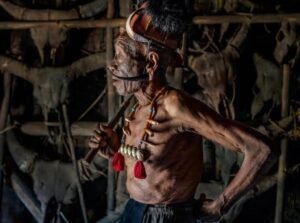
Hunting is crucial in reinforcing the Naga cultural identity and fostering community solidarity. The shared experiences of hunting expeditions create a strong sense of belonging, promoting unity and camaraderie among community members. Traditional songs, dances, and storytelling are woven into these hunting rituals, further enriching the cultural tapestry.
Economic Supplement
Recently, as modern livelihood opportunities emerged, the significance of hunting for sustenance has diminished. However, hunting still plays a supplementary economic role in the lives of the Nagas. The sale of hunted animals and their by-products helps generate income, especially in rural areas with limited access to mainstream economic activities.
Hunting has been integral to Naga culture for centuries, shaping their traditions, values, and relationship with nature. As the world progresses, the Nagas continue demonstrating the importance of preserving cultural practices that sustainably coexist with nature. The significance of hunting among the Nagas transcends mere sustenance; it symbolises their connection to their roots, their ancestors, and their land. As we celebrate the diversity of cultures worldwide, we must recognise and respect the Naga reverence for hunting as an inseparable part of their heritage.
